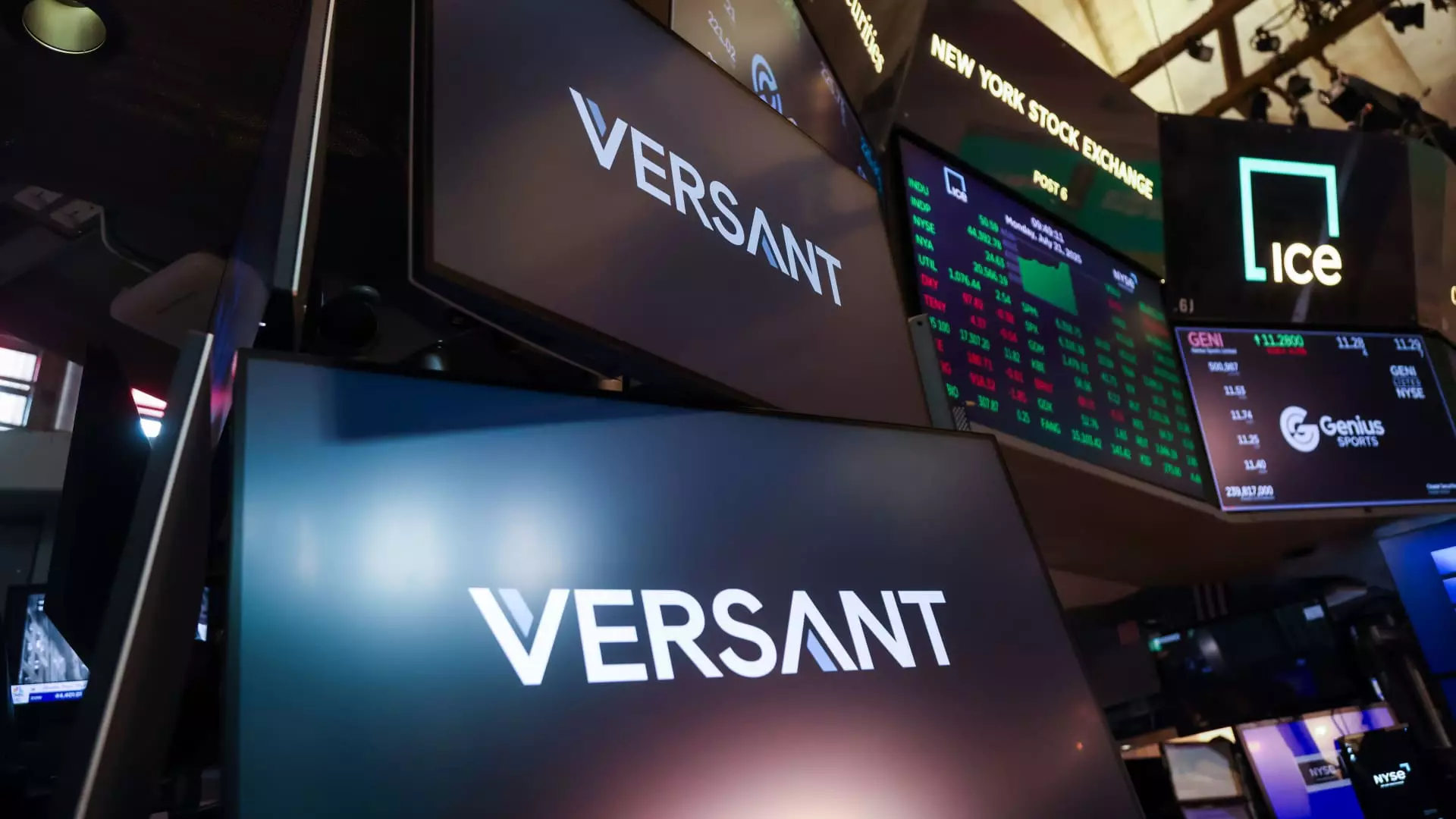In a move that signals major upheaval within the media landscape, Comcast’s decision to spin off its cable networks into Versant promises to reshape industry dynamics profoundly. While industry analysts may focus on the logistical implications of this divestment, it’s imperative to understand the deeper motivations and potential consequences of this bold venture. The formation of Versant is more than a corporate restructuring; it is a statement on how legacy media companies are redefining their identities amidst rapid technological shifts and decentralizing consumer preferences. If executed with strategic vision, Versant could embody a more agile, innovative force that challenges traditional media dominance. Conversely, if mismanaged, it risks diluting the brand cohesion and alienating loyal audiences who associate these networks with the Comcast legacy.
The Power of Leadership: A Constellation of Industry Heavyweights
At the heart of this transformation lies a carefully curated board of seasoned professionals, each bringing a unique perspective from media, finance, law, and technology sectors. Mark Lazarus’s appointment as CEO underscores a commitment to integrating media expertise with strategic foresight. Lazarus, with his tenure at NBCUniversal, has demonstrated an ability to manage large content portfolios—an essential skill in the current fragmented state of the industry. David Novak’s role as prospective chairman further signals an emphasis on leadership grounded in operational excellence and strategic growth—a necessary foundation for a standalone entity navigating complex markets. The involvement of figures like Rebecca Campbell and Michael Conway emphasizes a blend of creative vision and operational pragmatism. Yet, this mix of leadership also raises questions: are these individuals equipped to steer Versant through turbulent waters or are they merely symbolizing pedigree without a clear, disruptive strategy?
Challenges and Opportunities in a Post- Comcast Media Ecosystem
The real challenge facing Versant is whether it can leverage its diverse assets—traditional cable channels, streaming services, and digital platforms—into a unified powerhouse. The landscape is riddled with uncertainty: cord-cutting continues, advertisers scrutinize ROI, and new competitors emerge from unexpected sectors. While the strategic divestment aims to streamline Comcast’s focus, it also leaves Versant vulnerable without the broader backing of a corporate giant. This scenario creates a paradox: the independence might foster innovation and swift decision-making but could also limit resources and strategic influence. The key question is whether Versant’s leadership can visionarily adapt to fierce digital competition while respecting the legacy assets they manage. As a center-left liberal observer, I believe this shift must be approached with a sense of social responsibility, ensuring that the new entity prioritizes diverse content, accessibility, and community engagement rather than solely prioritizing shareholder profits.
The Risk of Market Fragmentation and Cultural Dilution
One of the inherent risks of such a spinoff is the potential for market fragmentation. When iconic channels like MSNBC, CNBC, and Oxygen operate under different corporate umbrellas, their strategic alignment might weaken, diluting their collective cultural influence. The danger here is losing the cohesive storytelling and core values that have historically defined these networks. Moreover, as these platforms pivot toward digital and streaming priorities, questions arise about whether they can maintain the quality and trustworthiness that audiences have come to expect. The change also brings up concerns about corporate culture: will Versant prioritize innovative, socially conscious content that empowers viewers or fall into the trap of commodification and corporate vanillaism? A truly progressive media organization must anticipate that these transitions are not merely about financial restructuring but about shaping a media narrative that aligns with broader socio-political values.
Looking Ahead: The Future of Independent Media Entities
Ultimately, the success of Versant hinges on its ability to differentiate itself within an increasingly crowded, algorithm-driven ecosystem. This is a pivotal moment that tests whether a spinout can transcend the limitations of its parent company and forge a new, independently thriving identity. For those of us who believe in media as a force for positive societal change, this transition should symbolize an opportunity to elevate underrepresented voices and foster community discourse. Yet, skepticism persists: without the broad resources and influence of Comcast, Versant’s journey will depend heavily on visionary leadership and strategic agility. While the move may appear risky, it also holds potential for resurgence, whereby legacy media is reimagined to serve contemporary audiences—not as a mere corporate spinout but as a reinvigorated, socially aware, and innovative media beacon.

